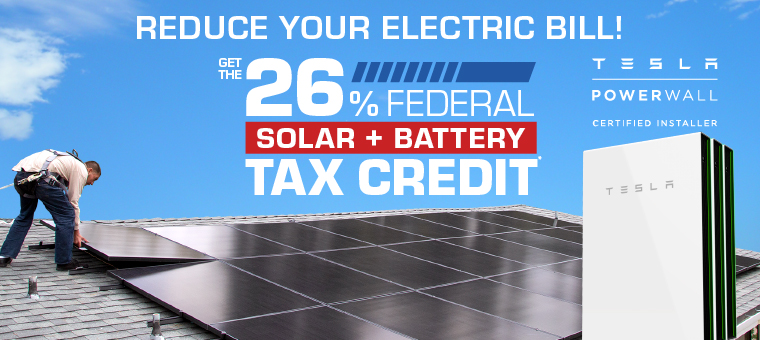




The investment tax credit (ITC), also known as the federal tax credit, has encouraged homeowners to purchase and use renewable power like solar. The initiative aims to reduce footprints caused by fossil fuels. According to statistics, burning oil, natural gas, or coal, to use in electricity and heat account for about 75% of the greenhouse gas emission.
Greenhouse gas emission contributes to rising global temperatures and the sea level. In turn, this affects climate change. It is no wonder that the US government saw it best to continue with the Solar Investment Tax Credit up to 2022. With the initiative, an average Semper Solaris client will save an estimated $6000**or more when choosing to install solar panels.
The cost of solar connection is dropping across the state, making this a suitable time for you to make use of the stem.
History of Solar Investment Credit
The ITC was founded in 2005 as- the energy policy renewable act of 2005. It was signed into law by President George W. Bush. The initiative was set such that it will expire in 2007.
After it was established, the ITC becomes successful in supporting the US transition to renewable energy. Most homeowners took advantage of the Investment Credit to ensure that they have installed the system.
Due to the positive effect it had, Congress has extended its expiration various times. The initial reduction was 30%, and it leased through 2019. Donald Trump made the most recent change in December 2020. He extended the ITC at 26%, which was to take effect for the next two years.
The goal of extending the solar act over the years is to encourage homeowners to have secure, affordable, and reliable energy. The initiative aims to address the challenges that are found in the US. For that reason, the government has included a tax initiative for the residential properties that are using solar energy.
However, when filing for the federal tax credit, you need to understand what it is and what it entails.
How Does The Tax Credit Work?
If you fit the description above, then you will be liable for the solar investment tax credit. In case you find that you do not have enough liability to claim the complete credit in one year, you can choose to roll it over to future years. Keep in mind that you can make a claim as long as the tax credits practical.
Keep in mind if you have signed a lease with the solar installer, the system does not belong to you, and if that is the case, you are not legible for the tax credit.
For you to receive your credit, you need to complete the IRS form 5685. When filling the taxes, add your information on renewable energy information to your typical 1040 form. Most of the software will have an option where you can file the claim. In case you are using a tax expert ensure you have informed them about the solar energy you are using.
In case you pay the same amount as you get for your tax credit, you can pay off the tax debt with the credit you receive. You can also choose to get the remainder after you have withheld the refund.
Why You Should Install the Solar Panel In 2021
The ITC has been extended various times over the past years. Although it is an important initiative, at one time it will come to a stop. If so, you need to take advantage of the ITC while it is still active. Going from what has happened in the past, even if the extension is made in the future, it might mean getting a lower tax credit.